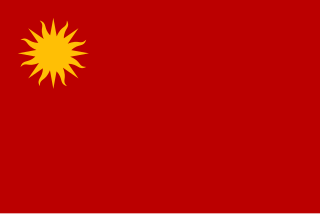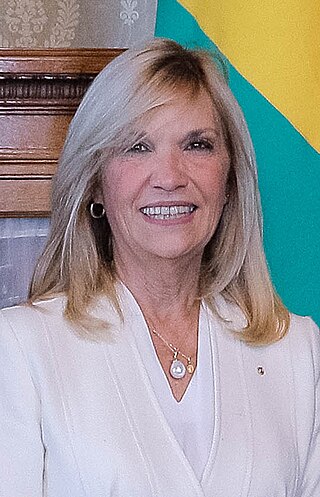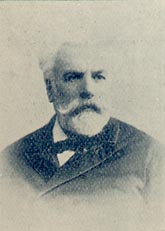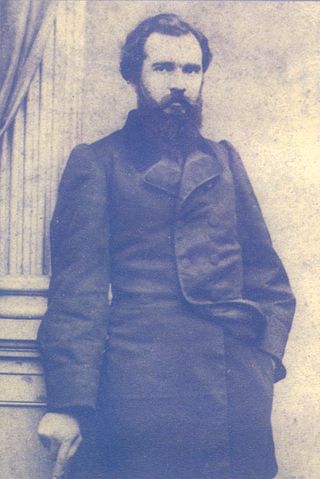 |
|---|
Senate elections were held in Uruguay on 24 November 1912 to elect 6 of the 19 members of the Senate.
 |
|---|
Senate elections were held in Uruguay on 24 November 1912 to elect 6 of the 19 members of the Senate.
| Party | Votes | % | Seats | |
|---|---|---|---|---|
| Colorado-National United List | 3,737 | 68.23 | – | |
| Colorado Party | 1,330 | 24.28 | 5 | |
| National Party | 410 | 7.49 | 1 | |
| Total | 5,477 | 100.00 | 6 | |
| Source: Bottinelli et al. [1] | ||||

The Colorado Party is a liberal political party in Uruguay.

The Socialist Party of Uruguay is a socialist political party in Uruguay. Founded in 1910, it is part of the Broad Front political coalition and the Progressive Alliance.

The Broad Front is a left-wing political coalition from Uruguay. It was the ruling party of Uruguay from 2005 to 2020 and has produced two presidents: José Mujica (2010–2015) and Tabaré Vázquez. Since 1999, it has been the largest party in Uruguay's General Assembly.

The vice president of Uruguay is the person with the second highest position in the executive branch of the Uruguayan government, after the President of Uruguay. The Vice President replaces the elected President in case of his death or absence. The vice president is also an officer in the legislative branch, as president of the Chamber of Senators and of the General Assembly.

The Chamber of Senators of Uruguay, or Senate, is the upper house of the General Assembly of Uruguay. It has 30 members, elected for a five-year term by proportional representation; the Vice-president presides over the chamber's sessions.

The Chamber of Representatives is the lower house of the General Assembly of Uruguay. The Chamber has 99 members, elected for a five-year term by proportional representation with at least two members per department.

The General Assembly of Uruguay or parliament is the legislative branch of the government of Uruguay, and consists of two chambers: the Chamber of Senators and the Chamber of Representatives. General Assembly has 130 voting members: 99 representatives and 30 senators, the Vice President of the Republic, who serves as President of the General Assembly, and the Senate has the right to vote. The legislature meets in the Legislative Palace in Montevideo. Both senators and representatives are chosen through proportional representation for five-year terms.
Same-sex marriage has been legal in Uruguay since August 5, 2013. A bill for legalization was passed by the Chamber of Representatives on December 12, 2012, in a vote of 81–6. The Senate approved it with some minor amendments on April 2, 2013, in a 23–8 vote. The amended bill was approved by the Chamber of Representatives in a 71–21 vote on April 10 and was signed into law by President José Mujica on May 3, 2013. It took effect on August 5. Uruguay was the third country in South America, after Argentina and Brazil, and the fourteenth in the world to legalize same-sex marriage.

Duncan Antonio Stewart Agell, was a Uruguayan president of Scottish Argentine origin. He served as interim President of Uruguay for a brief time in 1894.

The Legislative Palace of Uruguay is a monumental building, meeting place of the General Assembly of Uruguay, and the seat of the legislative branch of the Uruguayan government. It is located in the Aguada neighborhood of Montevideo.

Francisco Antonino Vidal (1827–1889) was born in Montevideo, though his birth has also been reported as in 1825, in San Carlos, Uruguay. He was a senator and two-time president of Uruguay.

Parliamentary elections were held in Uruguay on 14 January 1917. The Colorado Party won a majority of seats in both the Chamber of Representatives and Senate.

General elections were held in Uruguay on 26 November 1922 to elect the president, all members of the Chamber of Representatives, seven of the nineteen members of the Senate and three members of the National Council of Administration. It was the first time that the presidency had been directly elected, and the Colorado Party received most votes overall, and its lead candidate José Serrato was elected president. The Colorado Party factions also won a majority of seats in the Chamber of Representatives, while the National Party won five of the seven Senate seats.

Elections were held in Uruguay on 8 February 1925 for the National Administration Council and 6 of the 19 members of the Senate. The result was a victory for the National Party, which won 49.3% of the vote.

General elections were held in Uruguay on 28 November 1926, electing the president, three members of the National Council of Administration and six of the nineteen members of the Senate.

General elections were held in Uruguay on 25 November 1928, electing all members of the Chamber of Representatives, three members of the National Council of Administration and seven of the nineteen members of the Senate.

General elections were held in Uruguay on 30 November 1930, electing the president, three members of the National Council of Administration and six of the nineteen members of the Senate. Although Luis Alberto de Herrera of the National Party received the most individual votes for president, the Colorado Party received more votes overall and its lead candidate Gabriel Terra was elected president. The Colorado Party won two of the three seats in the National Council of Administration, while the National Party won four of the six seats in the Senate.

General elections were held in Uruguay on 27 November 1932 to elect members of the National Council of Administration and 6 of the 19 members of the Senate. The various factions of the Colorado Party received almost two-thirds of the vote.

Parliamentary elections were held in Uruguay on 19 April 1934, alongside a constitutional referendum. For the first time, the Senate was directly elected by voters. The result was a victory for the Colorado Party, which won a majority of seats in the Chamber of Representatives.